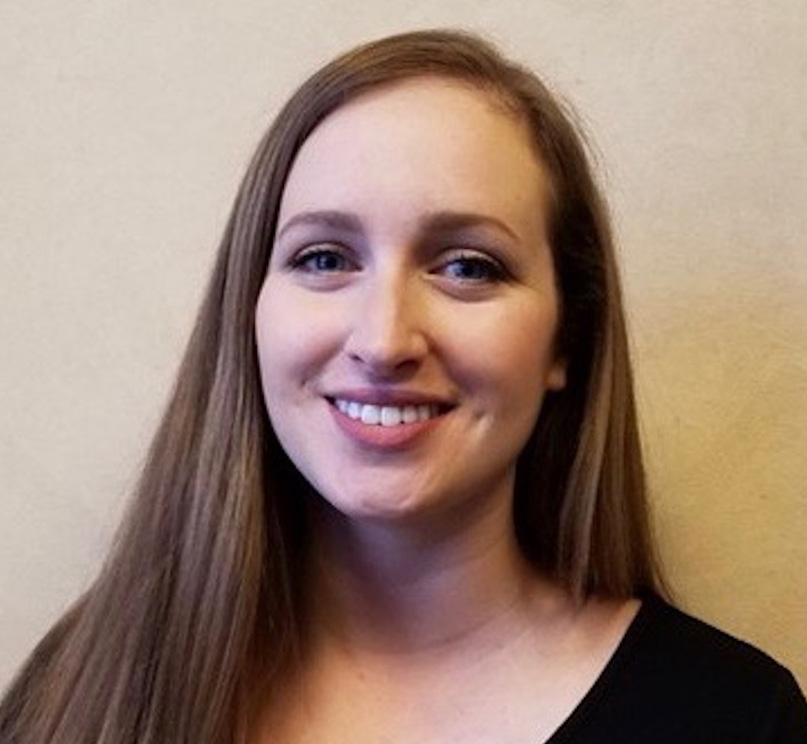RaeAnn Swanson-Evans

RaeAnn Swanson-Evans
Education
B.A. in History and Anthropology, UNI, 2013
Masters degree in Public History, UNI, 2015
Currently a Ph.D. Candidate at the University of Texas at El Paso
Why did you choose to attend UNI? What factors influenced your reason for studying your major?
I chose UNI because it was the perfect distance from home- not too far, but not too close! I had taken some courses at NIACC during my senior year and found that I enjoyed the history classes the most and so decided to major in that at UNI. Then, after taking Human Origins and Culture, Nature, and society (now Introduction to Cultural Anthropology) for core credits, I was hooked on Anthro classes and decided to double major.
What do you do in your current position? What do you enjoy about it?
I have spent the last six years working as a Teaching Assistant, Research Assistant, and Instructor at UTEP. I mostly work with undergraduate students in history classes. I love finding creative ways to introduce students to history content while also providing them with skills like source evaluation and contextualization, digital literacy, and essay writing that can be applied to other classes or daily life. I think history instructors have a really important role in showing students how structures of power, state institutions, and ideologies have shaped our modern world.
How did your major help prepare you for your current role? What skills are you still using today?
UNI’s instructors not only provided me with the base of historical knowledge that I needed to complete my degrees and go on to the Ph.D. program at UTEP, but they also provided support throughout the whole process. They taught me how to carry out research, write research papers, visit archives, and present my research. In the MA program Dr. Leisl Carr Childers (now at Colorado State University) trained me in oral history and other aspects of Public History. I am utilizing all of these skills in my current and future position.
What is a memorable part of your studies or participation within your major?
There are so many! First, the projects that I worked on during my time as a Public History MA, such as the Fortepan Iowa project and the Community Voices: Postville Oral History Project, have shaped my academic philosophy and pushed me to form more project-based courses that empower students to take control of their own learning as well as produce final projects based on sound historical methods and content that they can be proud of.
Second, I wouldn’t be where I am if I hadn’t taken Dr. Fernando Calderón’s Political Violence and Memory in Latin America class. It truly shook me to my core and taught me so much I didn’t know about U.S. intervention in Latin America. Also, the insistence of Dr. Roberts, Dr. Cutter, and Dr. Calderón to switch my MA thesis topic from Gender and Environmentalism in the Progressive Era to modern transnational migration between Guatemala and Iowa set me on a path that led to me UTEP.
Finally, the undergraduate History courses I remember the most fondly were Popular Culture and U.S. Environmental History, the Public History Field Experience, and the Sacred Space Capstone study abroad course in Italy. The History Department and Honors Program also had opportunities for financial support for research and conference travel; experiences that helped me grow professionally.
What advice would you give to students currently interested in the same major and/or going into your career field?
It’s a long and challenging road. Listen carefully to your advisors and weigh each decision. An MA and a Ph.D. take a lot of sacrifices; for example leaving family for years, the accumulation of debt, and the reality of the sub-par job market. The good thing about a History or Anthropology major is that the skills you learn in these courses are applicable to many careers. You gain an understanding of the underpinnings of the world and the people within it that other majors do not necessarily provide. There are growing opportunities to utilize historical skills in Public History positions and in the Digital Humanities.
Is there anything else you would like to add or share?
I am more than thrilled to be joining Kirkwood’s History Department this fall and I couldn’t have done it without UNI’s faculty and History, Public History, and Anthropology programs!
